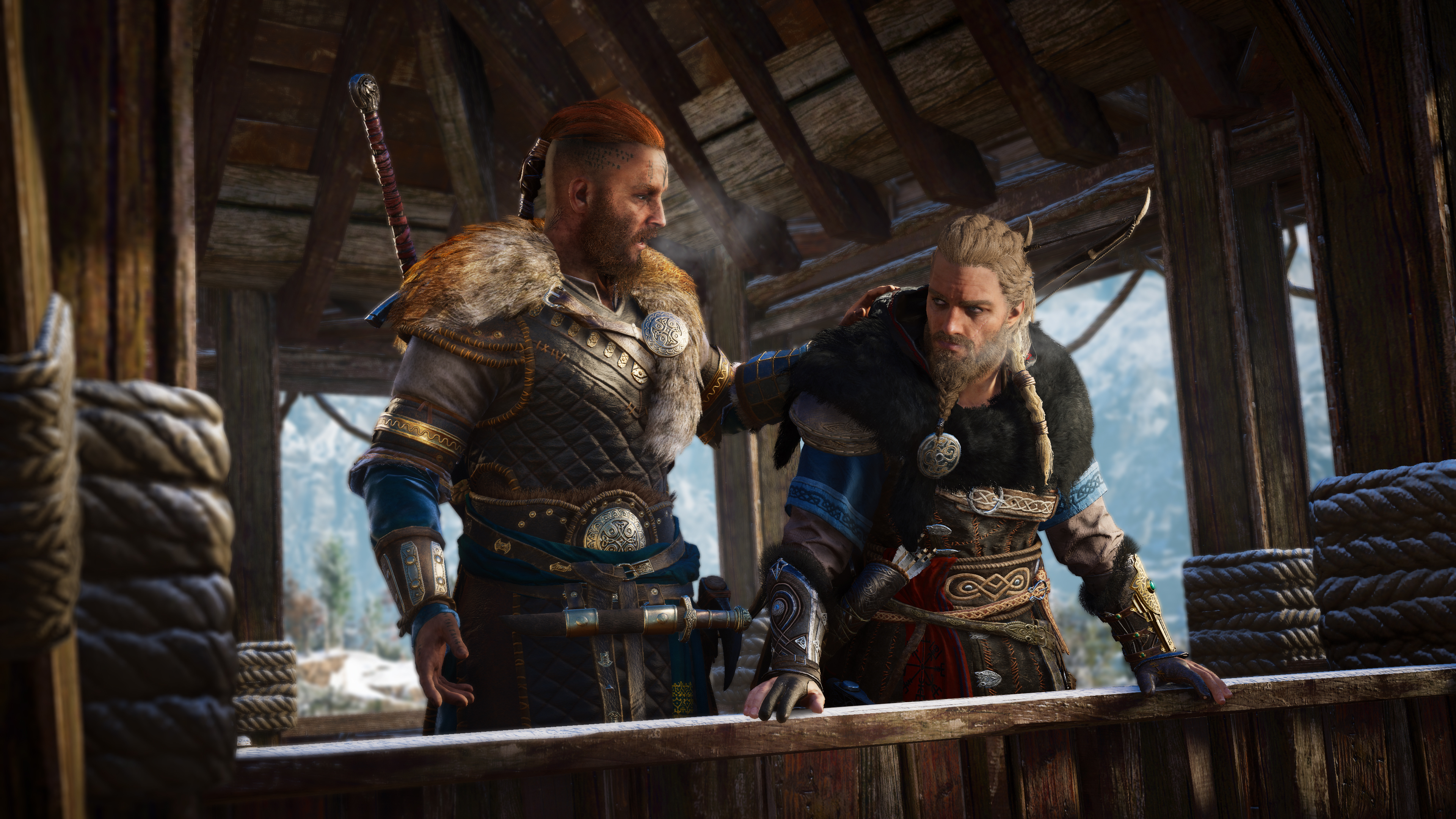Tom's Guide Verdict
Assassin’s Creed Valhalla is a good time, with fun combat and a beautiful setting. But it’s also full of the open-world busywork that’s characterized the series lately.
Pros
- +
Robust combat and character-building
- +
Large, beautiful open world
- +
Interesting story and characters
Cons
- -
Overstuffed with busywork
- -
Tangential Assassin’s Creed connection
- -
Does little to build on Origins and Odyssey
Why you can trust Tom's Guide
EDITOR'S NOTE: Assassin's Creed Valhalla won a "highly recommended" honor for Best PS5 game/Best Xbox Series X game at the Tom's Guide Awards 2021 for gaming.
Assassin’s Creed Valhalla is one of the very first games for both the PS5 and the Xbox Series X. But while the graphics are as gorgeous as they come, the gameplay is decidedly last-gen. Once again, you’ll take control of a warrior who finds himself embroiled in a battle between two secret societies at a pivotal point in history. Once again, you’ll assassinate a few dozen high-profile targets and unravel a big conspiracy. And once again, you’ll explore a truly enormous world that starts off interesting, and gets repetitive the longer you play.
If this sounds damning, it shouldn’t — not entirely, at least. Assassin’s Creed Valhalla is still a fun game, and a perfectly good way to dive into your new console this fall. (Although it’s also available on current-gen systems and runs just fine, for those who aren’t ready to take the plunge yet.) The combat system is both nuanced and enjoyable, the world has plenty of mysteries worth exploring and the central story is pretty good — even if the Assassin’s Creed connection is not immediately apparent.
- PS5: Read the full review
- Assassin’s Creed Valhalla: 10 tips to fight like a Viking
- Killer Assassin's Creed games could be coming to Nintendo Switch
If Assassin’s Creed Odyssey left you wondering whether the formula would get another much-needed shakeup, Valhalla’s answer is a contented shrug. But at the very least, Valhalla is no worse than the games that came before it — and there’s always some value in the franchise’s meticulous historical tourism. Read on for our full Assassin’s Creed Valhalla review.
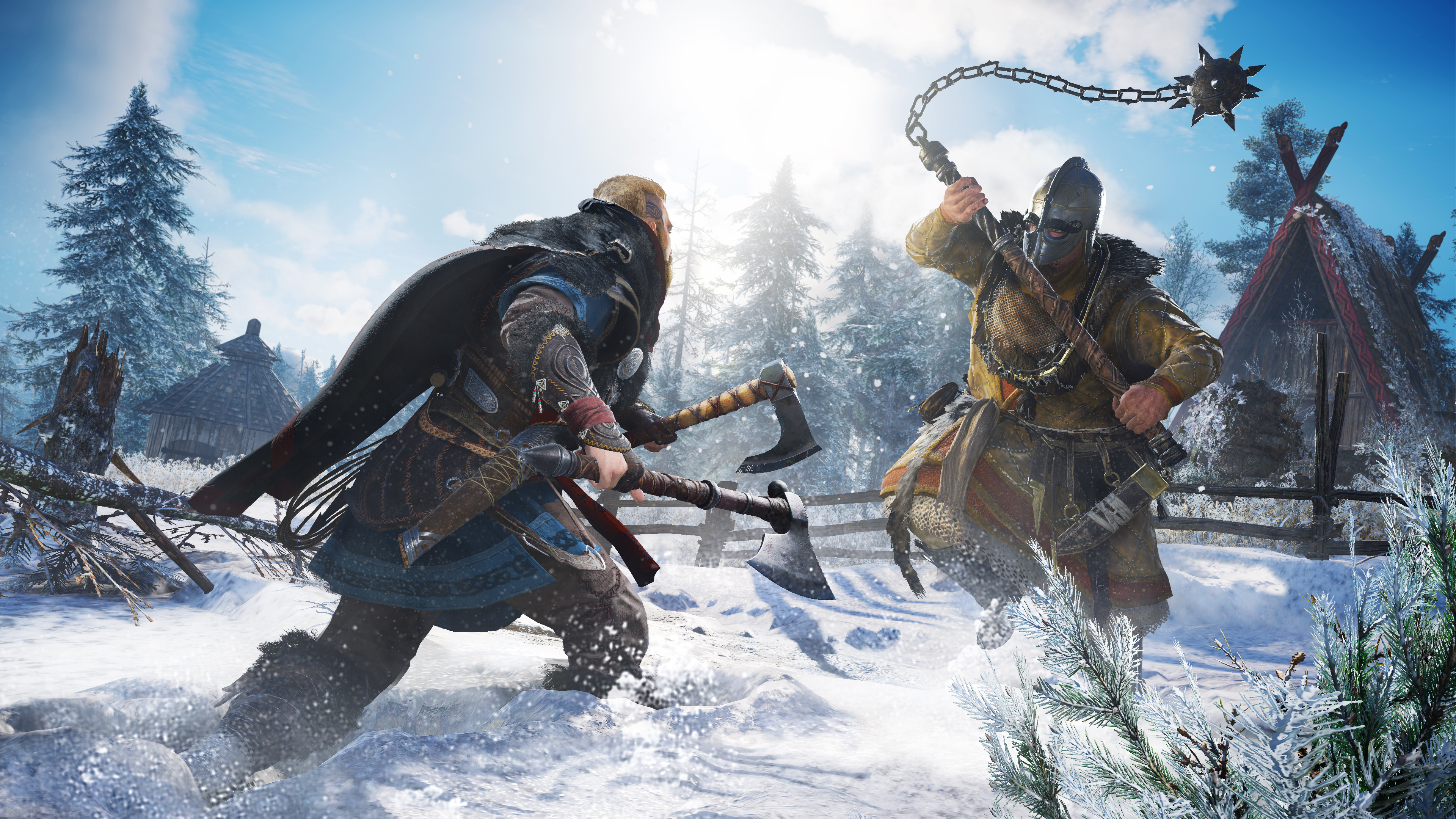
Assassin’s Creed Valhalla review: Gameplay
Assassin’s Creed Valhalla delivers one of the settings that fans have been requesting since the early days of the series: the Viking Age. You take control of Eivor: a prominent son (or daughter) in a family of noble Danes. He and his brother Sigurd set out to establish a settlement in England for honor and glory — and to distance themselves from the ambitious King Harald back in Norway. Once there, Eivor learns about an ancient cult that could threaten England’s stability, and it’s up to him (and his clan) to sneak, fight, explore, build and raid his way to victory.
As in previous Assassin’s Creed titles, there are three main components to gameplay: Combat, stealth, and exploration. And, as in Origins and Odyssey, stealth takes a definite backseat to the other two. You’ll spend a ton of time in Assassin’s Creed Valhalla riding your horse across the fields or piloting your longship through the rivers of medieval England. The map is huge (although not quite as staggeringly large as Odyssey’s), and objectives are spread pretty far apart, so get ready to take in a lot of (admittedly gorgeous) scenery along the way.
Exploration has both its charms and its frustration. As you traverse the English countryside, you’ll come across three types of side activities: artifacts (collectible doodads), wealth (powerful weapons or abilities) and mysteries. The first two are pretty straightforward, and collecting them gets tiresome early on. You can only raid so many camps or solve so many small environmental puzzles before you start to wonder whether you really need that legendary axe or Roman artifact.
Get instant access to breaking news, the hottest reviews, great deals and helpful tips.
Mysteries, on the other hand, represents some of the best of what Assassin’s Creed Valhalla has to offer. These side activities aren’t the simple fetch quests or combat challenges of Origins and Odyssey. Instead, they could be just about anything, from instigating a mock raid by lighting a cottage on fire, to eating hallucinogenic mushrooms and solving brainteasers, to proving your wit in Viking rap battles. (This is a real thing. It’s called “flyting,” and it’s probably the best recurring side quest in the game.)
As such, a lot of exploration is repetitive busywork, but a significant minority of it comprises challenging, creative quests. I’d often want to make a beeline for the mysteries in each new area, then begrudgingly remind myself that Wealth and Artifact quests were also vital for earning experience and equipment.
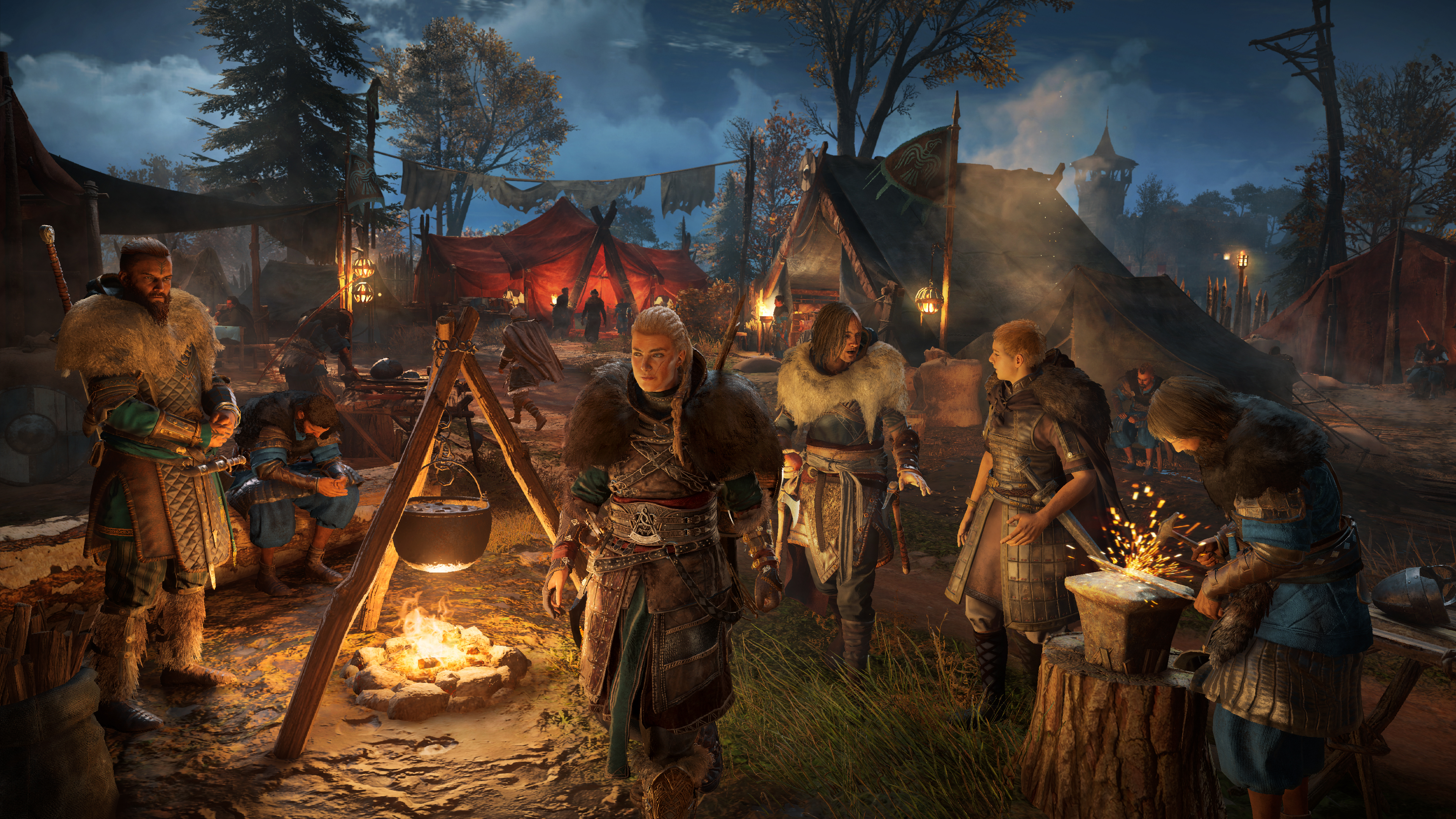
Assassin’s Creed Valhalla review: Combat, raids and settlement
As you might expect from a game about Viking raiders, combat takes center stage in Assassin’s Creed Valhalla. You can equip a variety of weapons, from battle axes to spears to bows, then take on large groups of enemies with your light, heavy and ranged attacks. You can collect special abilities from Wealth sub-quests, learn passive abilities by gaining experience and prioritize your favorite types of skills and equipment as you level up. For the first time in the series, you can also dual-wield weapons if you wish to forego a shield — although you’d better be extremely confident in your parry timing.
Combat is fairly similar to Origins and Odyssey, with an emphasis on fast attack, parries and dodges, particularly when dealing with large groups of foes. However, this time the camera pulls back a little farther than before, and enemies don’t have quite as much HP, making combat more manageable and streamlined.
I found the experience a little easier than the last two games (particularly since if you do a lot of side content, you’ll almost always be over-leveled for the main quest), but there are two mitigating factors. First, your healing options are limited, meaning that a few mistakes early on can cost you an entire battle. Second, your stamina (which you use for both heavy attacks) is limited, so you can no longer dodge indefinitely. Parrying is more vital than ever — which is why maybe it wasn’t a fantastic idea to make the “dodge” cue red and the “parry” cue an extremely similar orange, but you’ll learn to tell them apart over time.
Combat is varied enough to stay interesting, especially since you’ll encounter many different enemy types, each with different strategies. But this time around, mass combat is where the real fun is. Unlike the simplistic, repetitive Conquest Battles in Odyssey, Valhalla prompts you to raid camps and monasteries up and down the waterways of England. Since every raid target is different and no two store their wealth in the same place, each raid presents a challenging and dynamic experience. The rewards are also absolutely vital: materials to help build your settlement.
Another semi-new feature in Valhalla is Ravensthorpe: Your home settlement in England. By collecting materials and investing them in local businesses (a fishery, a brewery, a tanner and so forth), you can improve your settlement, which gives you access to new customization options and quests. It’s not terribly dissimilar from building up your villa back in Assassin’s Creed II, but the end goal is more varied than just making money.
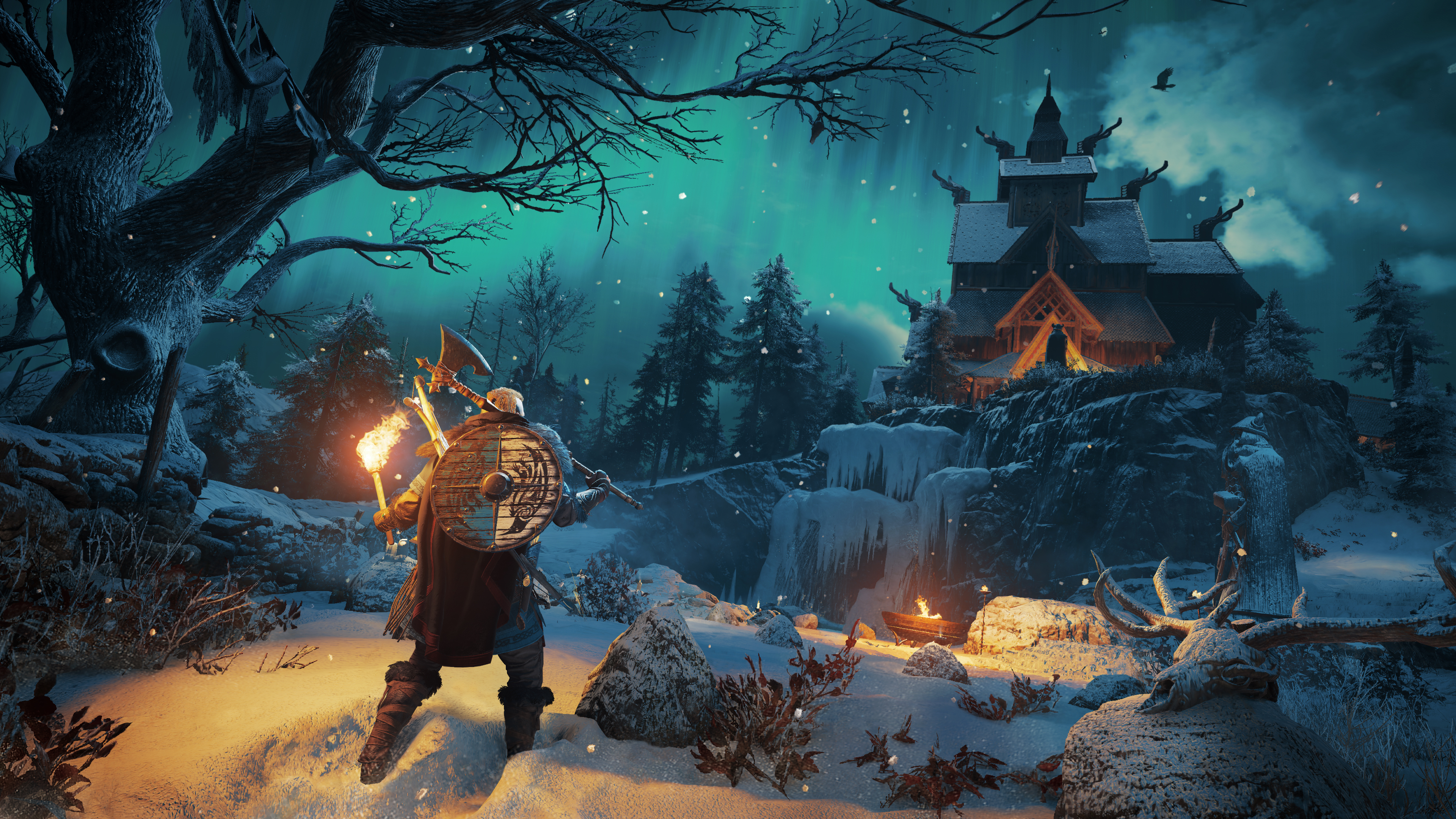
Assassin’s Creed Valhalla: Stealth and progression
If you thought that a pulse-pounding Viking warrior fantasy doesn’t exactly square with a measured stealth game about surgically removing key targets, you may be disappointed to learn that you guessed correctly. While stealth is still very much a part of Assassin’s Creed Valhalla, it’s taken a backseat to open combat again. In fact, if you don’t want to use it, it’s almost never necessary — and if you get good enough at open combat, stealth honestly doesn’t even save you that much time or trouble.
There’s not much to stealth, mechanically speaking. Press a button to crouch; stay quiet and out-of-sight to avoid alerting enemies; sneak up on them from behind or above to assassinate them with the series’ iconic hidden blade. Most enemies will go down in one hit; a select few can’t be assassinated outright, but it’s much less of an issue than it was in Odyssey. More difficult targets may also require a short timing minigame. If you build up Eivor with stealthy skills, it’s a viable way to play, but the game really does orient itself around open combat, whether it’s raiding a monastery with your crew or fighting one of the game’s many difficult bosses.
Speaking of character progression, it’s a little more interesting here than it was in Origins or Odyssey. Rather than just choosing skills and automatically becoming more powerful, you’ll have to pick and choose which abilities and stat boosts you want. You need relatively little experience to level up, and each level confers two “skill points,” which you can use to unlock various nodes on a huge board. These nodes might increase your melee resistance, or your stealth damage, or your affinity for a certain type of equipment, so there’s a lot of leeway to optimize Eivor to fit your playstyle.
Certain nodes will unlock new areas of the board, so leveling up is always a tug-of-war between “This skill could be useful” and “I wonder what that skill could reveal.” (If you’ve played Final Fantasy X, it bears more than a passing resemblance to the Sphere Grid.) It’s an organic and satisfying way to customize a character.
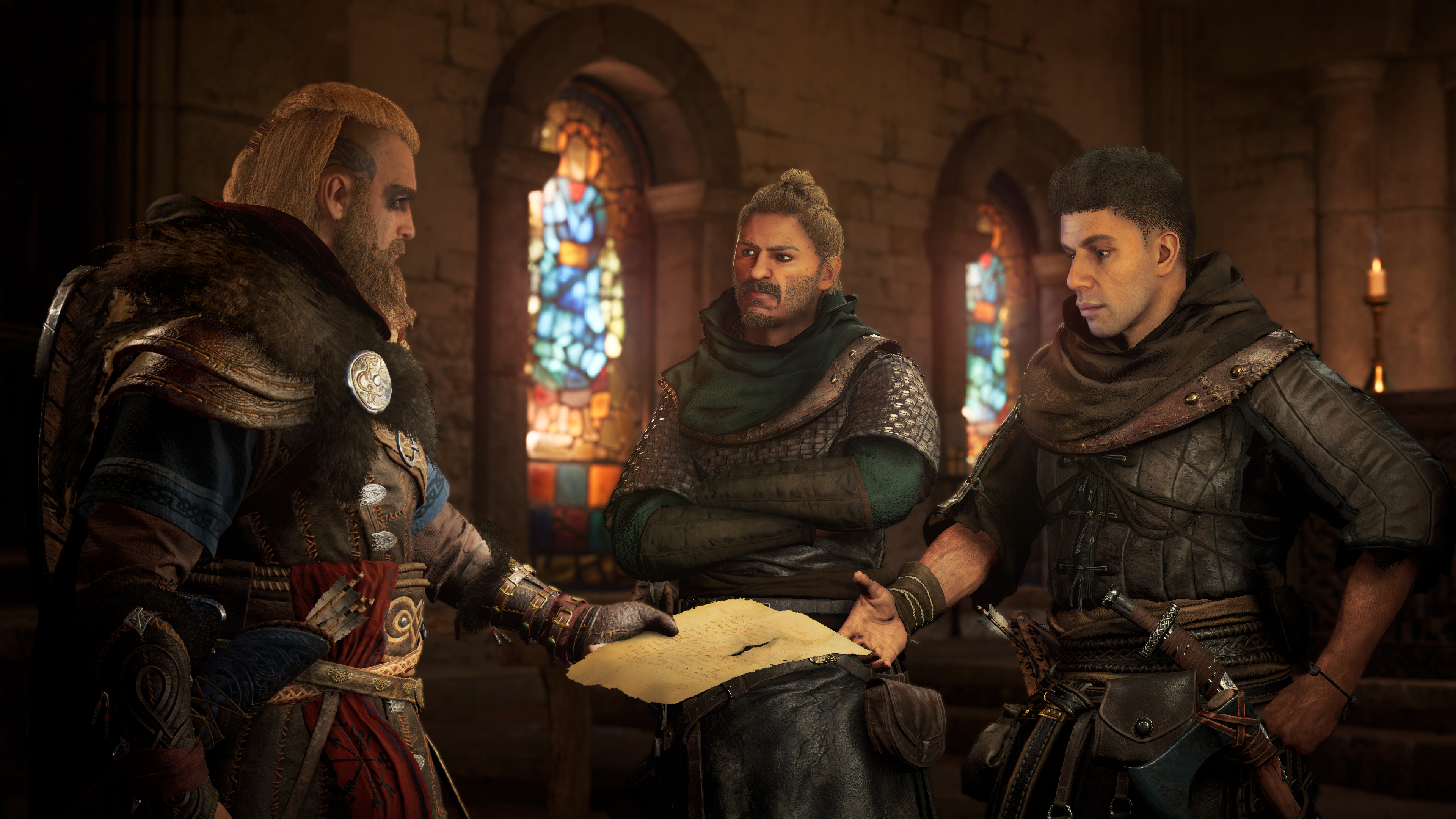
Assassin’s Creed Valhalla review: Story
The year is 873 CE, and the Danes have never been more powerful. But they’ve also never been more divided, as the eager young King Harald of Norway points out when he attempts to unite the warring clans. Wishing to forge their own kingdom rather than swear fealty, Viking brothers Sigurd and Eivor gather their townspeople and set off for England. There, they hope to establish their own Dane settlement among the warring Saxon kingdoms.
In terms of Eivor’s personal story, it’s all pretty compelling stuff. The friendship between Eivor, Sigurd and Sigurd’s wife, Randvi, provides a strong emotional core, and there are lots of interesting side characters who show up in each new chapter. The conflict between the pagan Danes and the Christian Saxons is rooted in real-world history, and it’s interesting to follow how the two groups get along — and how they don’t.
The only big drawback to all of this is that the connection to the ongoing Assassin’s Creed mythos is pretty tenuous for a large chunk of the game. Eivor is not an Assassin (or Hidden One, since the “Assassin” moniker is still a few hundred years off at this point), nor does he especially want to join their ranks. He wears his hidden blade openly and agrees to hunt the Order of Ancients (the proto-Templars) only because Sigurd made a few Assassin friends during his travels.
An Assassin’s Creed game where stealth is secondary and the main character is only tangentially associated with the titular group can work, as Assassin’s Creed IV: Black Flag demonstrated. But Black Flag also had an extremely deep and detailed ship combat mechanic to fall back on; Valhalla is the usual gameplay loop, but without an explicit Assassin connection.
There’s also a modern-day section where you’ll play as an Assassin named Layla, who was also our POV character in Origins and Odyssey. The sections themselves are just there to give the historical story some context. There’s a decent mystery at the center of Layla’s story, but you probably won’t think about it too much between interludes.

Assassin’s Creed Valhalla review: Graphics and sound
Assassin’s Creed Valhalla is supposed to show us what the PS5 and Xbox Series X can do when it comes to cross-gen games. It’s entirely possible that the next-gen version of Valhalla looks amazing; they weren’t available during the review period, however, so I’ll have to judge based on a PS4 copy, played via backwards compatibility on a PS5.
The good news is that the game is beautiful, either way. From the mountains of Norway to the rolling hills of England, the landscapes are rich and varied. Before all is said and done, you’ll find your way through meadows, forests, marshlands, military camps, towns, churches, monasteries and even some more exotic, spoiler-laden locations. The rich color palette and detailed textures make the game pop, particularly when you’re exploring a green area on a sunny day. (Since this is still England, a lot of the game takes place in gray, dreary weather, and that’s OK, too.)
The sound design is also top-notch, with spirited performances from Magnus Bruun and Cecilie Stenspil: Danish actors who voice the male and female versions of Eivor, respectively. When you sail your longship down English rivers, your crew will regale you with stories or play Scandinavian tunes. Even just the range of accents in the game, which vary from Dane to Dane and Saxon to Saxon, depending on your exact region, is impressive.
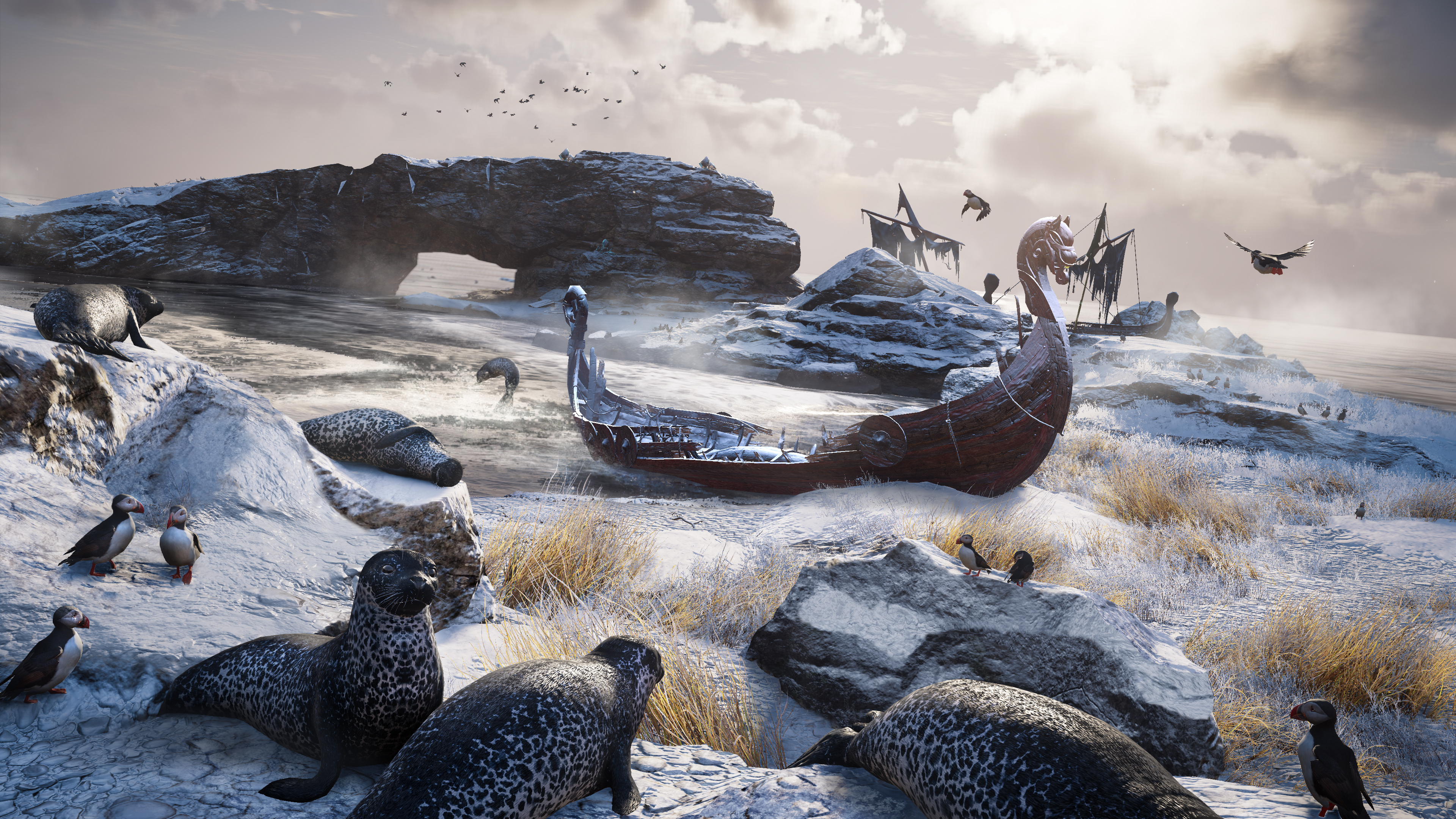
Assassin’s Creed Valhalla review: Verdict
At the time of writing this Assassin’s Creed Valhalla review, I’ve sunk about two -dozen hours into the game, and I’m willing to go back for more. I enjoy the combat system, the story and the sense of exploration. At the same time, the fact that I’m probably only about one-quarter of the way through gives me pause. This game has a ton of stuff to do; some of it is fun, some of it is tedious, and I sometimes wonder whether the balance is favorable.
Assassin’s Creed Valhalla is an easy enough recommendation for series fans who want to find out what happens next, or next-gen buyers who want a meaty open-world title for their first PS5 or Xbox Series X foray. Still, it’s hard to shake the feeling that Assassin’s Creed, as a series, has had much more interesting, inventive and focused games in the past. Now that the Origins/Odyssey/Valhalla trilogy is complete, it’s probably about time for another big shakeup.

Marshall Honorof was a senior editor for Tom's Guide, overseeing the site's coverage of gaming hardware and software. He comes from a science writing background, having studied paleomammalogy, biological anthropology, and the history of science and technology. After hours, you can find him practicing taekwondo or doing deep dives on classic sci-fi.
